|
“He’s not breathing.” I was the first to notice when we opened our eyes after the pastor said, “Amen.” I’ve seen enough death to know what it looks like—dead is so dead. My dad was gone—a foreign body lay where he once breathed. It was undeniable, yet inconceivable. It still makes me hold my breath with a mixture of disbelief and grief. It’s been a several-year journey of watching his decline and it feels like I’ve been breathing cautiously for a very long time. The news cycle is unrelenting. Every day brings a new story, some action or inaction, or a sound bite that remind me of our manmade capacity for fear and hate. Like all of us my brain has a negativity bias so I watch and read the news like a moth to the flame. Ironically, the limbic system was designed to save my ancient ancestors and me from danger. Sometimes called the paleomammalian brain, it is the oldest and most primitive part of our brains. It provides a critical function—it allows me to learn from my experience and avoid pain. At the first sign of danger it gets me ready; fight, flight, or freeze. This is all well and good when a tiger or a bear is chasing me through the woods but when the same limbic system is activated by the news, it does not always serve me. I move into survival and my breathing gets me ready to form fists, run like hell or try to be silent and invisible. When my limbic brain is activated, I lose contact with the parts of my brain that give rise to compassion, empathy, joy, and wonder. Perhaps even more disconcerting, as bell hooks, author, feminist and social activist, recently said, “The monsters around us remind us of the monster within.” I’m breathing too hard. I’m barely breathing. And then there were the fires of Northern California. Two weeks ago the air was filled with smoke and ash and I stopped writing about breathing. In the margins of the draft I wrote, “This is NOT what I want to write.” Full stop. I couldn’t imagine how I could write about breathing when the very air I breathed was dangerous and a reminder of unbelievable suffering and loss. But when I re-read what I had written, I realized I had it all wrong. I should have said, “This is not what I want to feel!” There is a connection between breathing and feeling. When I started this essay I wanted to tell you, “breathing making everything better.” It doesn’t. Sometimes it feels worse. The present moment is not always a sweet place to land. Sometimes I don’t like what I breathe. Sometimes I don’t like what I feel. Sometimes I don’t want to be “woke”. A good friend recently told me that he feels thin. I think many of us feel thin—we don’t have extra, we have limited capacity. Many of us are having difficulty breathing. Some of us are taking small, careful, rationed breaths. Some of us might even be ambivalent about breathing. Ironically, most of us do all of this breathing while ignoring our breath. What if we practiced breathing? Sharon Salzburg, author, Buddhist meditation teach and co-founder of the Insight Meditation Society, calls it "resilience training". Every breath is an invitation to begin again—continuous opportunities for do-overs. But here’s the deal—breathing requires taking it in. It takes courage these days to take it in. It runs completely against our limbic impulse to move away from pain. Let me tell you, this moving-towards does not wear rose-colored glasses. I don’t think pain is a gift. I prefer Sharon Salzburg’s reframe, “Don’t think of trauma as a gift but rather as a given.” Moving into a mindful relationship with the pain "that is” through conscious breathing creates the opportunity for the next part of breathing—letting go. Unfortunately, letting go ain’t easy either! I get attached to my stories of pain—they make sense of a world that is scary and crazy. Letting go requires something extra to follow my exhaling breath—forgiveness. This kind of forgiveness is not about judgment or shame. It’s generous and compassionate, first and foremost to my own sweet self. This forgiveness opens the space for the next breath. It makes room for something expansive and unexpected.The miracle of mindfulness is what happens after I exhale.
May my breath and your breath be our prayer.
0 Comments
Dad died August 6, 2017, eight hours before his 92nd birthday. Dad’s death sends shockwaves through my being—vibrations that are shape shifters. I’ve started this post several times but it never seems right. I don’t know how to write about his death. My intention is to write what is true as best as I can know my heart. But I alternate between feeling that my heart isn’t in it or that I’m not being honest. I can’t see myself in any of Elizabeth Kubler Ross’ stages of grief. Mom asked me numerous times, “Do you think it’s strange I haven’t cried?” I should have said, “Yes, I am also walking in a strange land.” In the words of the Negro spiritual (but thinking of dad), “Sometimes I feel like a fatherless child. A long way from home.” This grief is heart breaking, busy, buried and confusing. For now, the only place I find home is in the wisdom of my breath. Here, truth blossoms with gentle hands and a soothing touch and the need for understanding or explanation is replaced by being. My tears are an ephemeral but profound visitation of a world beyond the wall. Almost Tears Ripe droplets, no names Waiting to be found Longing for silence-- Enough space to fall On a thirsty soil Such small voices in Complicated homes Holy places and Some hidden from grace Yes—but spaces like Unexamined wine Too little, too much Contradictory Stored in flesh and bone Cells that could sing If only held soft Unlocked by own hand With a sacred breath Almost arrives—now David Fredrickson August 2017 * * * *(1983. Dad and mom with monster tomato from dad's garden).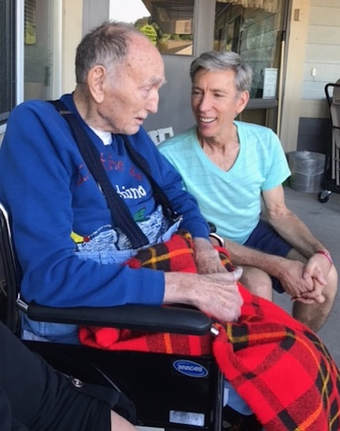 My siblings and I were home last week. I hoped he would eat. I peeled back the bright green leaves and ran my fingers over the tender kernels. It was the first pick of Wisconsin sweet corn. On top of everything else, dad said it hurt to chew. Attempts to pinpoint pain were like finding Waldo—except Waldo was everywhere and nowhere at the same time. If words had flowed more freely, he probably would have said, “Pain? As compared to what . . . yesterday? About the same. Compared to a time when it didn’t hurt? Can’t remember that far.” I made sweet corn polenta and a zucchini, green bean ratatouille. I wasn't sure if it was fair but I hoped the tastes of summer would restore his imagination. * * * *(Oxlip, Minnesota, District 690 School).I’m sitting at the table in the front of the one room country school with my fellow second graders. My brother and sister sit at their desks doing independent work—the fourth and sixth grades will work with Mrs. Erickson at the front table after lunch. “See Dick run. See Jane run. Run, run, run.” My soprano voice rings clear and confident with the joy of letters becoming words. Mrs. Erickson is a much-loved magician. She moves learning around the room like an elixir. Yet there is something palpable about being in the same room as those who know more than you and those who are learning what you already know, especially when they are your siblings. (Me—front row with the paisley shirt (of course). My very blonde sister and brother in the row behind me).* * * *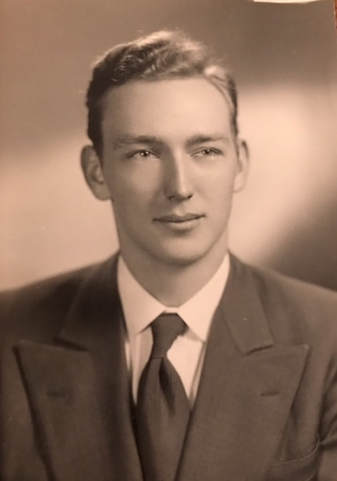 I stirred the polenta, creamy and rich. The ratatouille bubbled softly and released a medley of summer’s memories around our family 50's Formica kitchen table, feet barely touching the floor. But I am no longer a child and my offering did not fix this one. Dad only consumed a child’s portion. The food was pushed around his plate like lost treasure. Love is not always consumed. Sometimes it remains on the plate and bears witness to our intention, the offering of something ineffable. The cycle of life that revolves around the sun, begins where it ends and ends where it begins. It’s almost too beautiful, too painful, to eat. It starts with a dog bite. Note to self: I usually start these blogs because I think I have something to say but invariably I discover it’s something I’m supposed to hear. The Wizard of Oz begins with violence. Depending on your perspective, Toto takes a justified nip out of Elmira Gulch, the mean and heartless neighbor . . . or . . . Miss Gulch stands up for her rights to have a garden without digging dogs and a feline world free of dog harassment. The moral questions and angst cause our adolescent Dorothy to wonder, “A place where there isn’t trouble—do you suppose there is such a place, Toto?” Cue Judy Garland’s iconic “Somewhere Over the Rainbow.” That was 1939 and the question and the rainbow wish are still asking and still wishing. Where can I go in the middle of a shit storm? I think Dorothy ultimately ends up in the right place even though it takes a bump in the head, a fool’s journey, and a peak behind a fake magical curtain for her to let go so she can get there. When Dorothy’s house is swirling through air as her people, places and experiences fly past unhinged and dissociated, she ultimately lands in Oz. It feels like a real place (spoiler alert for those of you who somehow missed the ruby slippers), it’s just a dream. Oz is her monkey mind (constant chatter) on overdrive. Anything can happen in the Land of Oz—flowers become munchkins who can sing (sorta), beautiful witches travel in bubbles while ugly witches use brooms, and a scarecrow, tin man and lion decide to follow a pubescent Kansas girl with pigtails. Dorothy struggles and strives on the yellow brick road because she believes she can find the fix for the world. Ironically, in the end she discovers that her journey leads her back to where she started—home. Home is in the eye of my shit storm. Like Dorothy, it’s smack dab in the middle of my mess. It’s my seeing place, my knowing place, where things are seen as they are. Against all instincts, when I turn toward my tornado, observe and breathe deep but gentle self-compassionate breaths, something changes—me. Of course, many times I get lost in the story and confuse it for the truth. I chase dreams. My mind does what the mind does. It’s happy to provide an Oscar worthy screenplay. Yet, before I knew I could dream, I was bone and skin, a heart that thumped and lungs that danced like oceans on sandy beaches—the steady inhale and exhale of life pulled and caressed by a moonbeam. With a kindness that surprises me, sometimes I am able to invite myself back . . . again . . . and again. 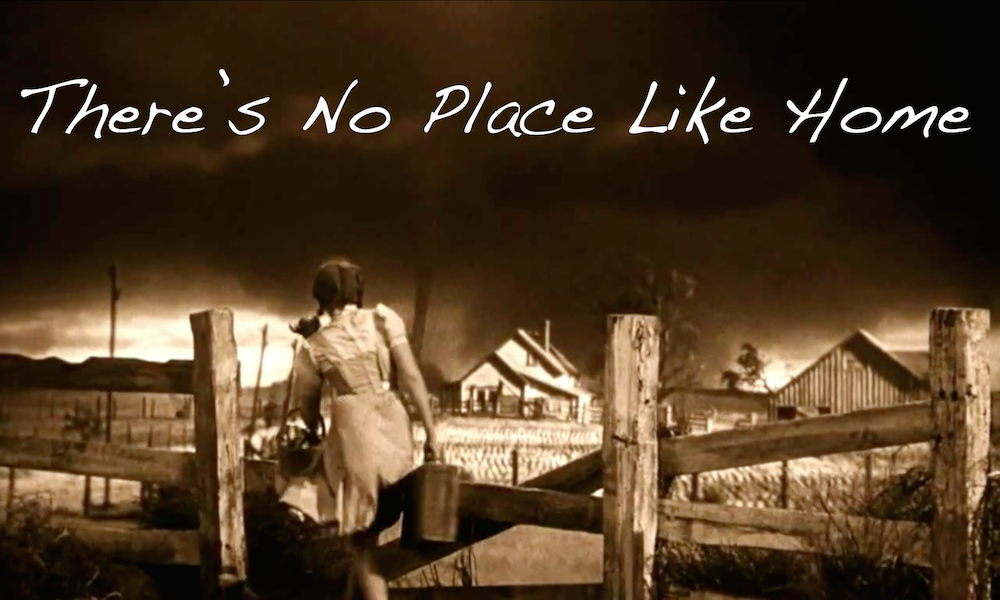 Words try to name this place, to enshrine it into memory so I don't have to work so hard. But my constructs are ripe dandelions in the middle of a sudden gust, fluffy puffs that fly away before I can hold them. I am left with the naked green stem and the smell of lost summers. And so I begin again. I was born with this capacity, the gift of breath. It aligns me with the Creator and my creation story. It always brings rain, fresh drops from untapped reservoirs, warm, salty, and sweet on wind chapped fleshy cheeks. In my brokenness with teeth unclenched and pain held in expansive rooms with gentle hands, I discover the dandelion seed set to flight—a gentle zephyr carrying a beating heart. In the middle of the shit storm, the eye of the storm, I watch my chest rise and fall. Hello good friend.
The warm glow of a winter sun and the stark blue sky make the red-rock bluffs and rusty-green desert valley look otherworldly. The landscape is formidable yet somehow I feel seen, both arid and water-soaked; it’s an oasis among ancient dry bones.
Cradled in my arms, I rock Wyatt back and forth. The bass timbre of my voice softly vibrates as I sing: “You are my sunshine, my only sunshine. You make me happy when skies are gray. You’ll never know dear how much I love you. Please don’t take my sunshine away.” He coos back to me in a sweet call and response. His arms stretch upward and his fingers wander to my face, an explorer in search of my lips. Over and over I sing “sunshine” and his eyelids grow heavy. He fights slumber surrender with whimpers and an arched back. I readjust his body against my shoulder and his head nestles in the harbor of my neck. I feel wet puffs of baby breath. “You’ll never know dear how much I love you.” He falls asleep and the weight of his little body feels like a sacred embrace. The guided meditation continued by suggesting that we tell our loved one, “May you be happy. May you be peaceful. May you be healthy. May you live with ease.” I usually try to follow directions, however, I had raced ahead of the instructions, I already had my mantra and it was set to music! So in my mind’s eye I sang another round of my sunshine ditty rocking this precious child with my own self-satisfied smile. The next part of the meditation was unexpected although I should have seen it coming (I was distracted by the baby!) We were told to let go of the image of our loved one and shift our awareness to ourselves, bringing attention to our body and spirit, noticing any stress or pain or uneasiness. And then the surprise, “Offer yourself the same loving kindness you gave your loved one—hold yourself as you held them.” In my mind’s eye I held the child that is David, innocent, hurt, beautiful, broken and messy. Cradled in my arms, I rock my child, back and forth. The bass timbre of my voice softly vibrates as I sing: “You are my sunshine, my only sunshine. You make me happy when skies are gray. You’ll never know dear how much I love you. Please don’t take my sunshine away.” The young me coos back in a sweet call and response. His arms stretch upward and his fingers wander to my face, an explorer in search of my lips. Over and over I sing “sunshine” and his eyelids grow heavy. He fights slumber surrender with whimpers and an arched back. I readjust his body against my shoulder and his head nestles in the harbor of my neck. I feel wet puffs of baby breath. “You’ll never know dear how much I love you.” He falls asleep and the weight of his little body feels like a sacred embrace. Dr. Neff and Dr. Germer say that the language of self-compassion is wet-eyes. And so, as I held myself, I spoke in tears which were actually better than words. Like water in a desert, I was touched in places I had forgotten were parched. As Pema Chodron says, “Compassion isn't some kind of self-improvement project or ideal that we're trying to live up to. Having compassion starts and ends with having compassion for all those unwanted parts of ourselves, all those imperfections that we don't even want to look at." This turning towards experience “as it is” with a loving connected presence is at the heart of mindful self-compassion. And in my experience healing is always a surprise. It’s never what I expect, or want, but it’s always what I need.
I can't know where I am going if I don't know where I am. I can't know where I am if I am not awake, aware, and listening. The journey (again) starts right here, right now. I can’t say that I’ve exactly misplaced my creativity because I know where it lives. Everyone has their own creative room, not necessarily a physical space, but a place in their soul where their voice resides. I know the room that holds my voice—it was built especially for me but lately I’ve been staying out. My pen feels like an amputated appendage and my keyboard like a frozen pond. I’d like to tell you that the post election storm has gotten in the way but the naked truth is that writing exposes my fear. The last two months I have stood at the door many times and considered pushing it open but there’s a snake that always slithers in the shadows. I’ve never seen this slimy, slippery creature but I can hear his whispers, “Don’t go in. You won’t find anything. You won’t like what you find. It’s too scary. It’s too hard.” And so I don’t. I find other ways to hold time even as it slips through my fingers. Sometimes there’s panic—tick, tock, tick, tock, I should be doing more. And sometimes it feels fine. I have a full enough life. I love and am loved enough. I am safe enough. I am warm enough. I am fed enough. I am healthy enough. But is enough . . . enough? What about those who do not have enough? I go back to the door—only to leave again. Rewind. Repeat. Dizzy from my dance with ambivalence, I decided to send my snake a note. Dear Snake, We know each other but we haven’t actually been formally introduced. Please come out the shadows. I know this must come as a surprise—it surprises me, but I’d like to have coffee and a chat. I promise not to kill you. It occurs to me that as much as you scare me, I must scare you. Do you have a name—a story? You must be more than the serpent of the Garden of Eden fame or Nagini, Lord Voldemort’s pet snake that almost took out Harry Potter. When I think about it, your life kinda sucks. I wouldn’t want to live on my belly—I wouldn’t like the view (or the dust). You must be lonely—I wonder if that’s the price of being feared. Perhaps you don’t really like the shadows. So why are you here, really? Could it be, like all of us, you just want to be seen? Sincerely, Can-we-make-a-different-story Strange, but this simple exchange caused a glimmer of change. My chest expanded and then air moved out my nose. I realized that my jaw was clenched and my shoulders were tight—I decided to let them soften. The hard edges of my inner life began to feel fluid and cottony—cloudlike. Wow, there was so much light! And then the OMG moment—I was writing.
Here’s a revolutionary idea—rather than berate my stubborn resistance to the things I supposedly want to do or the person I want to be, what if I was curious and kind. What if I held whatever state I find myself, with open arms and a soft gaze? Contrary to the shaming, punishing narrative, I don’t do my best work when I scowl and click my tongue in judgment and disgust. Christopher Germer, PhD., and Kristin Neff, PhD., self-compassion researchers and founders of Mindful Self Compassion say, “We give ourselves compassion not to feel better but because we feel bad.” Self-compassion is not a self-help technique. It is not a “fix it” strategy. Self-compassion is like the loving kindness that an ideal parent or friend or pet or God would give as they pulled up a chair to see and listen to our tantrums, rage, depression, joys, hopes, and fear. It’s a presence that never runs out of second chances. It has infinite patience and knows how to wait with gentle eyes that say, “As long as you need . . .” And here’s the part that is hard to wrap my head around; this presence is not a perfect parent or friend, or a sweet pet or a loving God (although any of these compassionate beings can help me get there), This compassion comes from me. Like all truly precious gifts, it is a gift that only I can give. In this self-compassionate space, I re-discover my voice—my creativity—a story that is waiting to be told. Self-compassion reveals that I live in rooms that are too small and that there is sacred truth in the shadows—slippery, slimy creatures waiting to be explored. I went to bed last night having let go of my faith and I woke up this morning in a pitch-dark room. I didn’t know what to say. I didn’t know how to walk. For someone who believes the connection to God, each other, the planet, and myself, is my spiritual journey, the light had gone out. I am grieving this morning for all those who voted out of fear. I am grieving for those who felt like they didn’t have a good choice. I am grieving for all women who have experienced the trauma of sexual assault only to be re-traumatized by this election. I am grieving for black and brown brothers and sisters who once again are feeling the danger and oppression that our culture perversely imbues their color. I am grieving for immigrants, documented and undocumented, whose humanity and security is diminished by this vote. I am grieving for Muslims whose faith automatically illicit fear and with impunity demonizes their character. I am grieving for our planet that desperately needs our stewardship and love. I am grieving all those, like me, who have lost their faith. Kelly McGonigal, PhD., who researches compassion at Stanford University, describes my condition as moral distress—the inability to trust each other and ourselves because of a crisis in our basic belief in goodness. As this morning has progressed and by forces greater than me, I have put one foot in front of the other. Here’s the thing about a pitch-dark room, the only antidote is light and the only light that I completely control is my own. So with faith the size of a mustard seed, I am turning on my light. With a timid heart afraid of being disappointed, hurt and broken, I am turning on the only light that can pierce darkness—love. I’m starting with you, my friends and family—you are easiest to love. Even though my instinct is to close my arms, I am opening my arms and reminding you and me that I see you and I love you. However, as important as this first step is, I don't feel angel wings or hear sweet kumbayas. In fact the flicker of light illuminates harder questions: How do I love justly? What do I do with my own privilege and explicit and implicit participation in oppression? How do I love without turning a blind eye to injustice? How do I fight for justice without dehumanizing those who dehumanize? In her article, Finding the Good After the Election, Dr. McGonigal has three suggestions: !. Do something. 2. Look for the good. 3. Be the good I will find my way. I will find my legs again but I won’t do it alone. I need you. We need each other. Finally I leave you with this anthem by Michael Franti--I think this is what light looks like. My choir has had the blessing of singing with Michael several times and I always feel uplifted. For a moment I wonder if we could set aside the debate that always divides rather than connects—the debate over who or what we pray to, his or her name, or even their existence. This post is about my conversation, cries, shouts, . . . yes prayer, in the privacy of my own heart with something bigger than me. It is said that prayer changes things . . . personally, I have a complicated relationship with prayer but in times of change I pray because I need help changing. I don’t know about you but I’ve been feeling out of sorts lately. I feel like I’m shuffling instead of walking. I feel like I’m moving in circles. I’m waiting and worrying that I’m wasting time waiting. I don’t think I’m alone. I think many of us are in the midst of change. Anne Lamott, one of my heroes, in her book, Help, Thanks, Wow: The Three Essential Prayers, suggests these three prayers in difficult times. HELPI was awake but hadn’t crawled out of bed when my cell phone rang. I was at home in Wisconsin for our family reunion. It was a beautiful yet fragile time together—life’s clock is always working but sometimes I am more aware of the tick tock. The voice at the other end of the phone was my dad, calling from the nursing home. “I’ve got a problem. I think my bag (colostomy bag) has failed and I’m afraid of getting out of bed and making a bigger mess. Can you come and change it for me?” My immediate thought was incredulous;You’re in a nursing home—use the call button and call a nurse! But in his call for help I also heard the unexpressed context for his request—he was not able to be in his own home even when his family was, there was a “for sale” sign on the front lawn, the day before he wasn’t feeling well enough to join us in a visit to the farm that his grandfather homesteaded and my dad grew up on—who knows when/if he might be able to visit again. So I let go of my resistance, climbed out of bed, and put on my big boy pants. Something I can’t really explain happened during the drive to the nursing home. When I walked into my parents’ room, I felt like I was entering a sacred space. Yes, it was an unpleasant task but there was also grace in this request for help. There was healing in the space between my dad lying prone and vulnerable and me. The help prayer is so hard to pray, it usually happens when I’ve fallen and can’t get up, but once I utter my surrender, I often feel the tears of grace. THANKSOne of my other heroes, Maya Angelou, demonstrated the thanks prayer best. Some of you may have seen this but attached is a video of one of Maya’s visits to my church. If you don’t have time to watch the full video, check out the first couple minutes. It’s a thanksgiving that overflows and is contagious. (The video is a “few” years old—before I started dying my hair gray. Ha! I’m in the top left corner with the smile that came from being in the presence of Maya's incandescent and ineffable light).
|
Daily Bites and BlessingsWelcome to "Daily Bites and Blessings." Pull up a chair. I’ve set a place for you at the table. These edibles are sometimes bitter, sometimes sweet and often they are both. This is a come as you are party. I invite you to bring your compassion, courage, and curiosity as we dine together on life's bounty. May our time together give us more light and more love.
Archives
January 2024
|
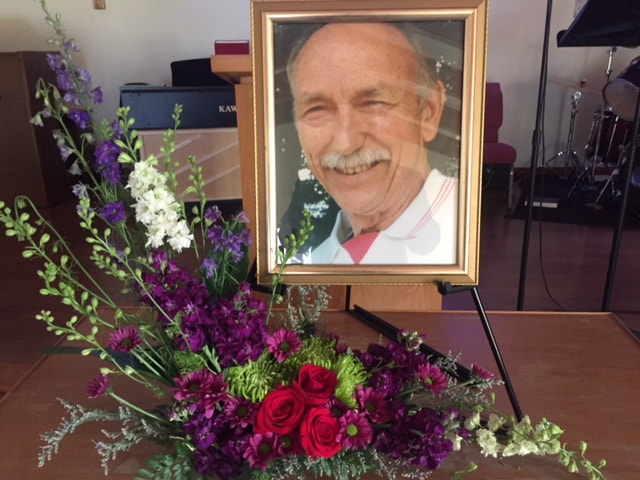
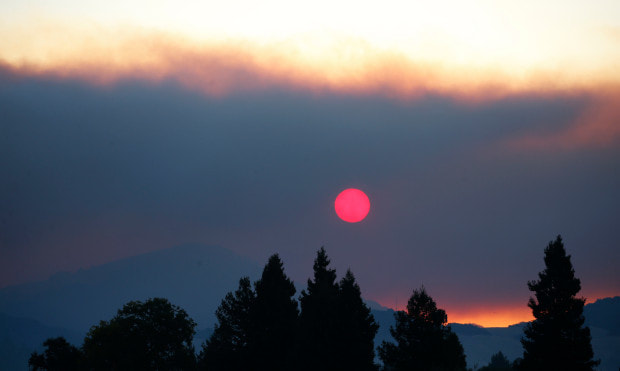
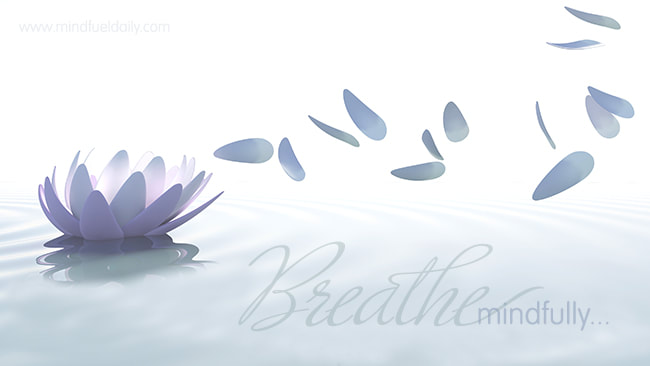
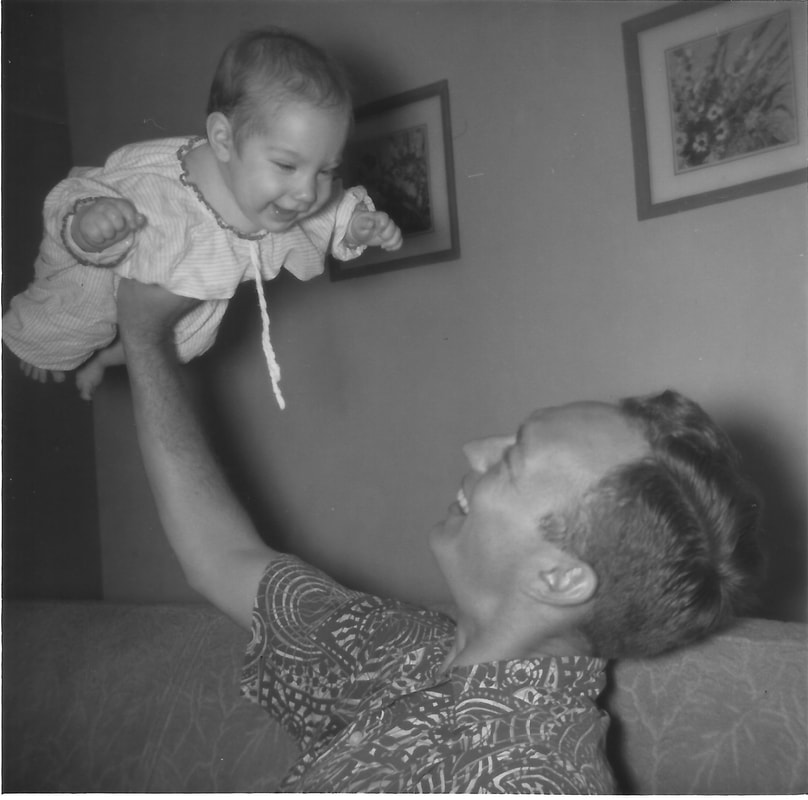
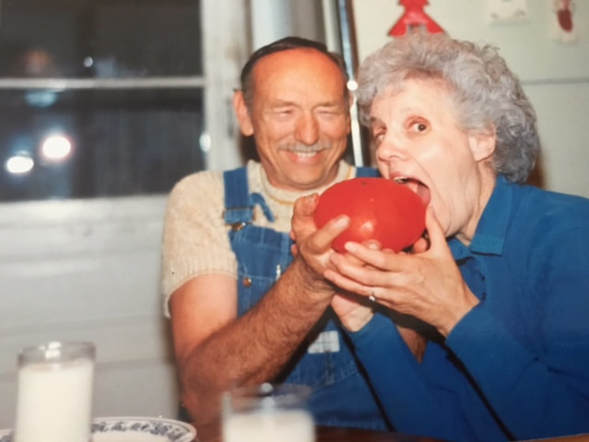

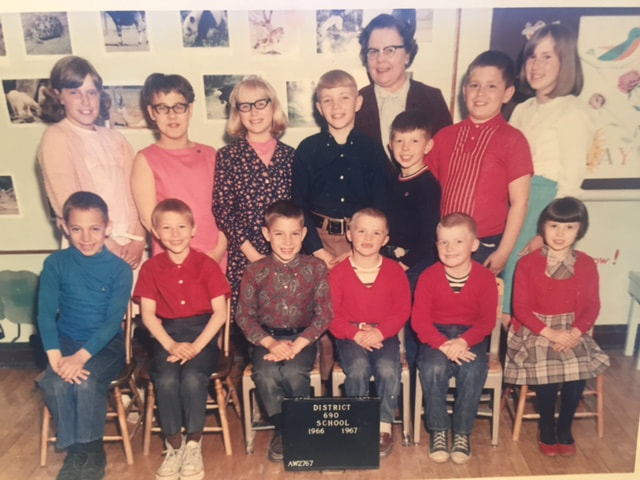
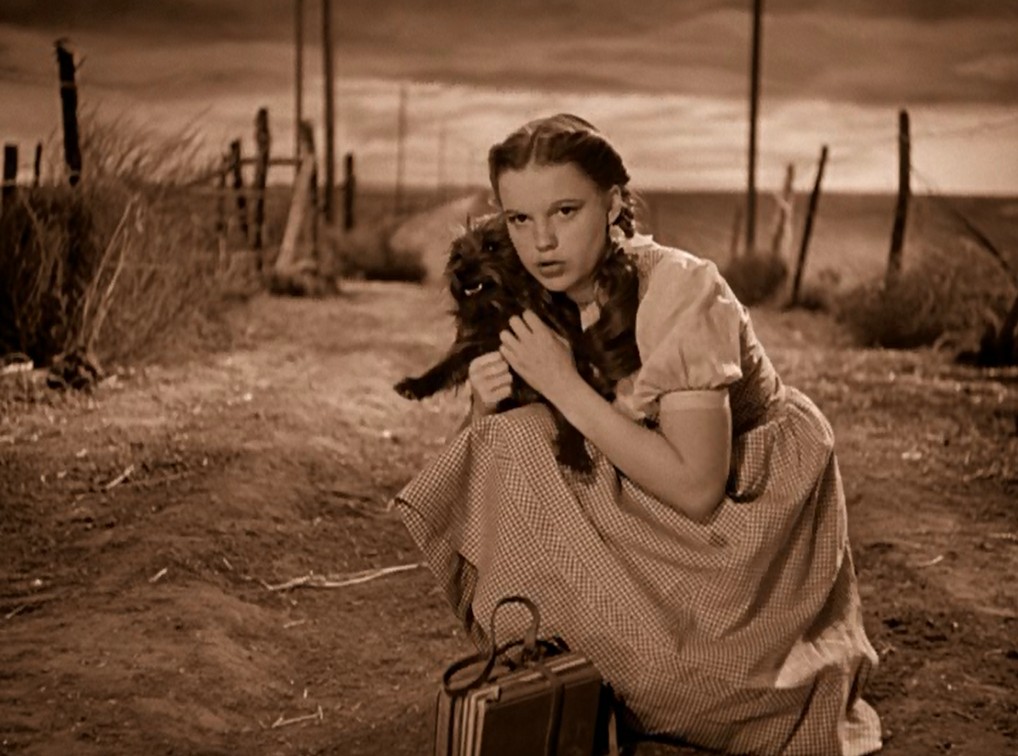
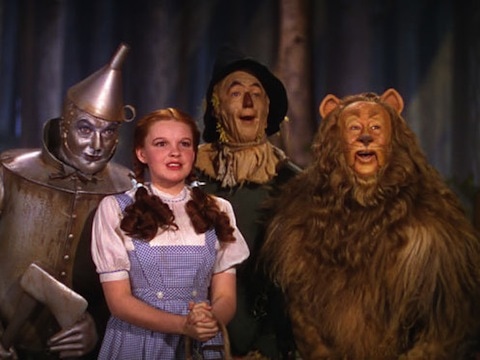
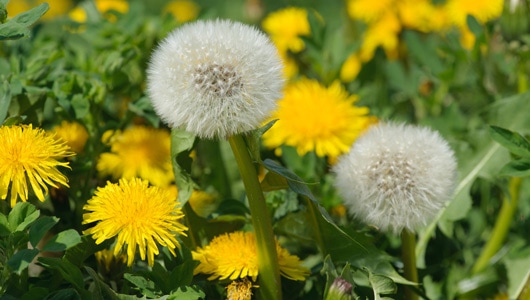
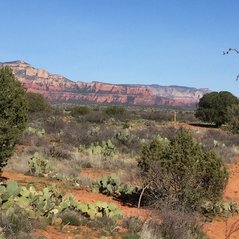
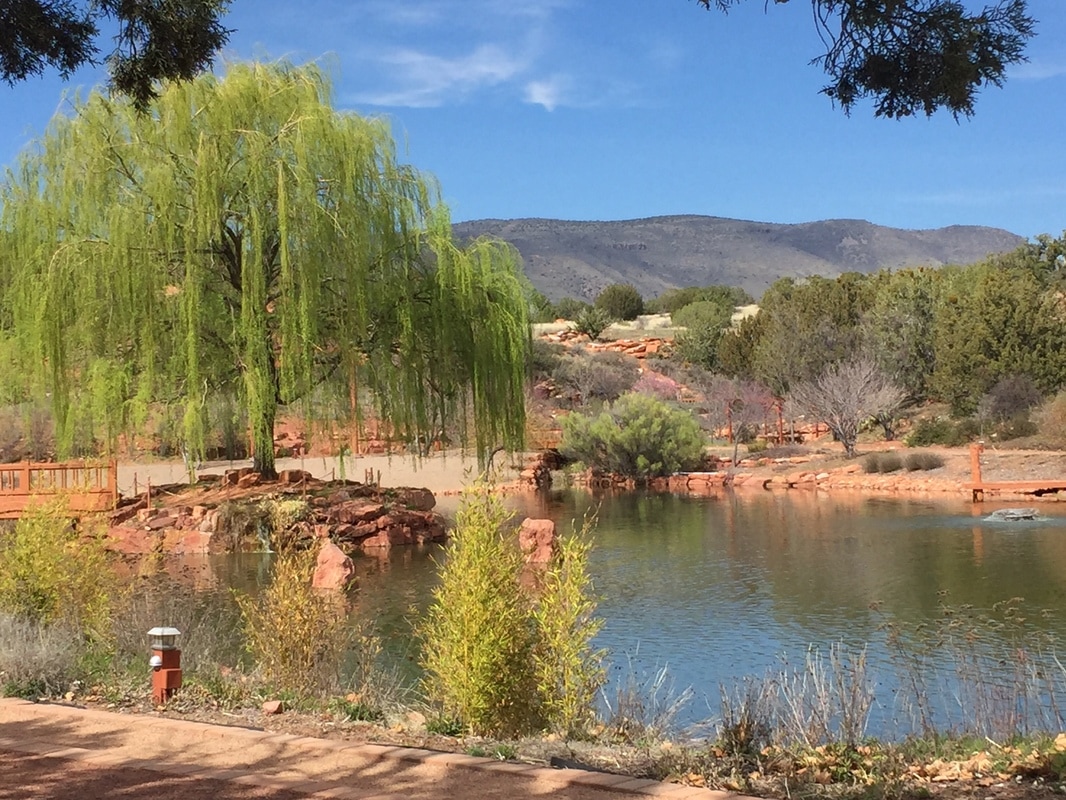
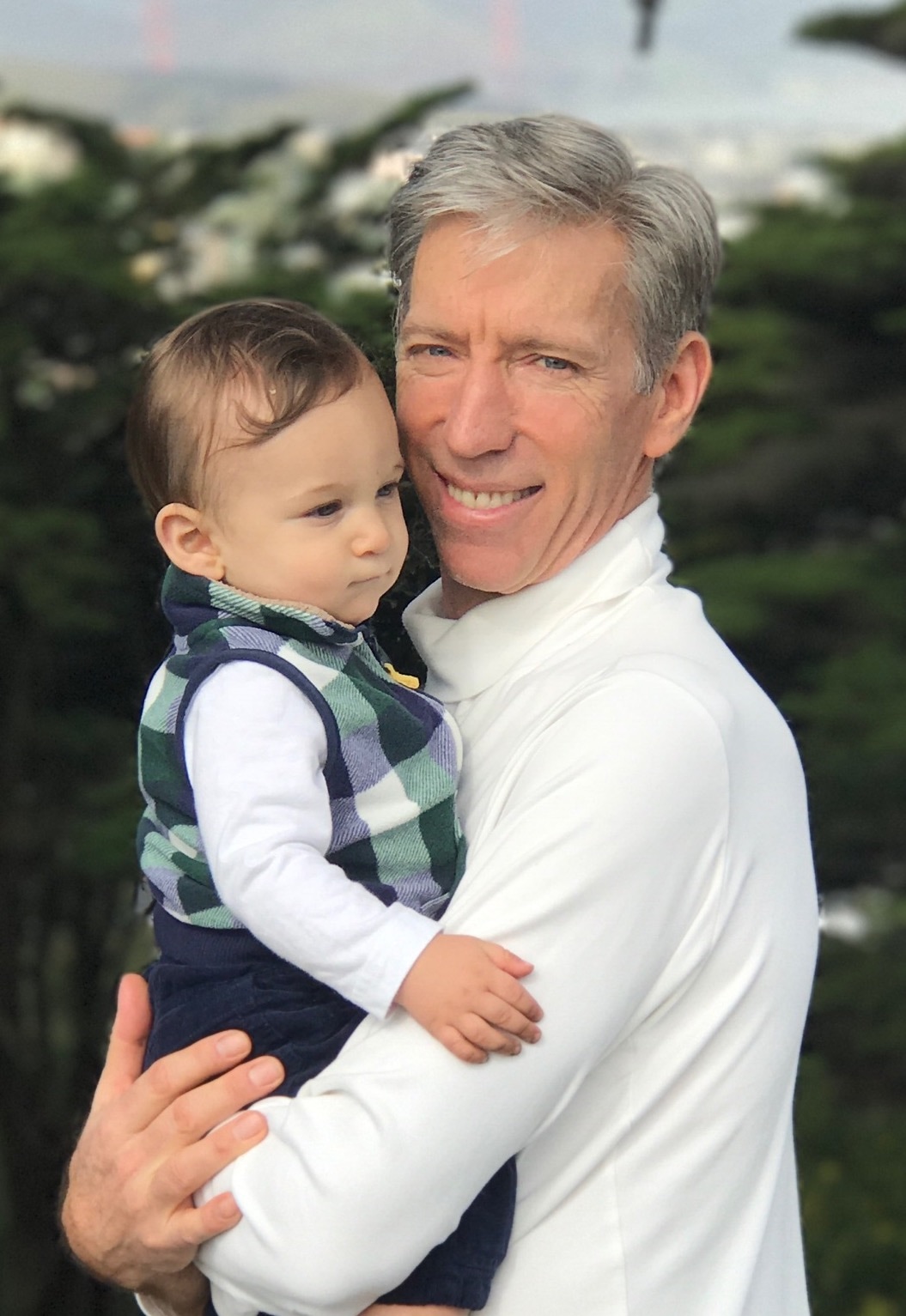
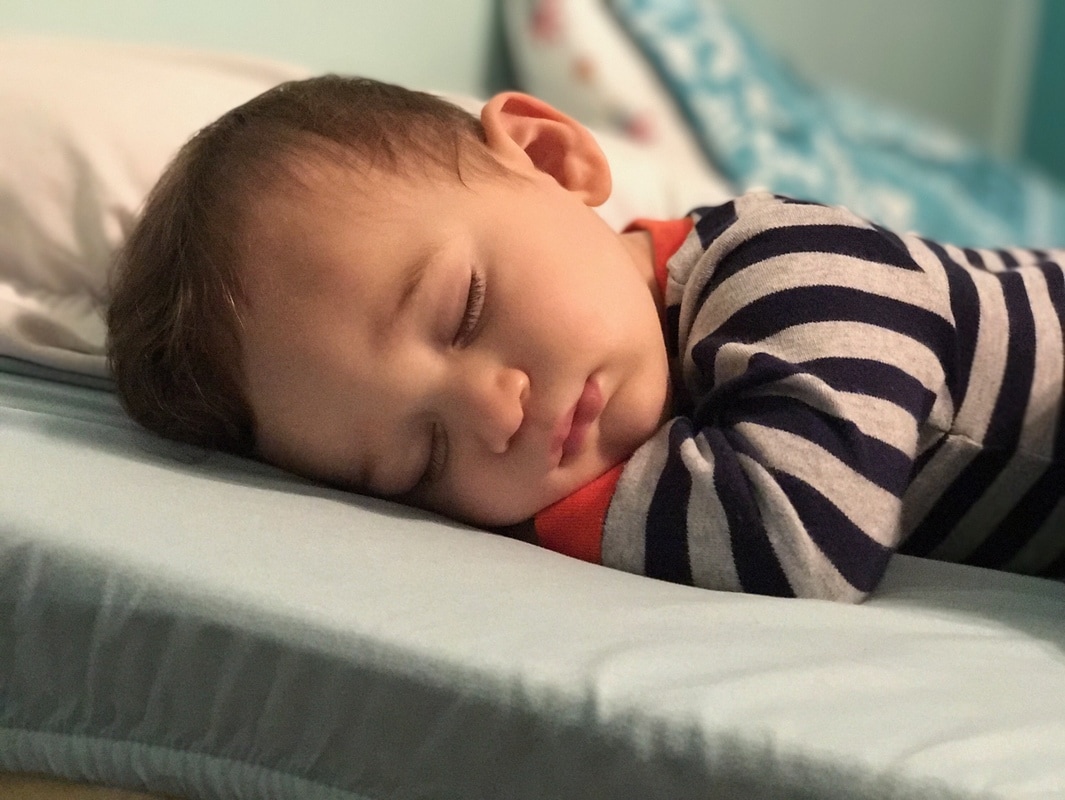
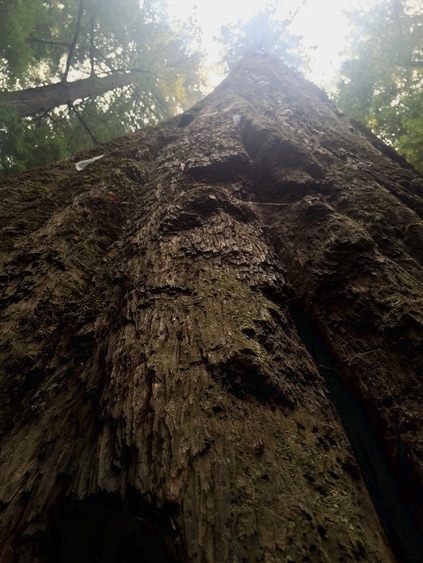
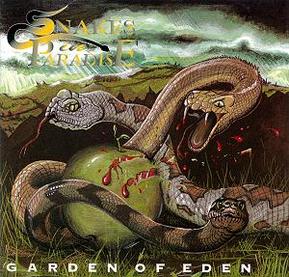

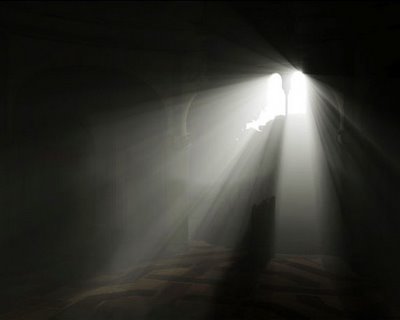

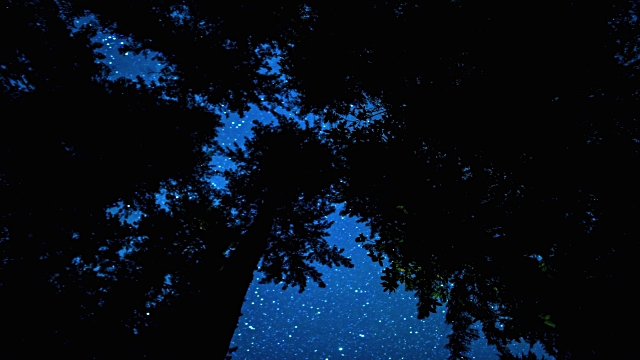
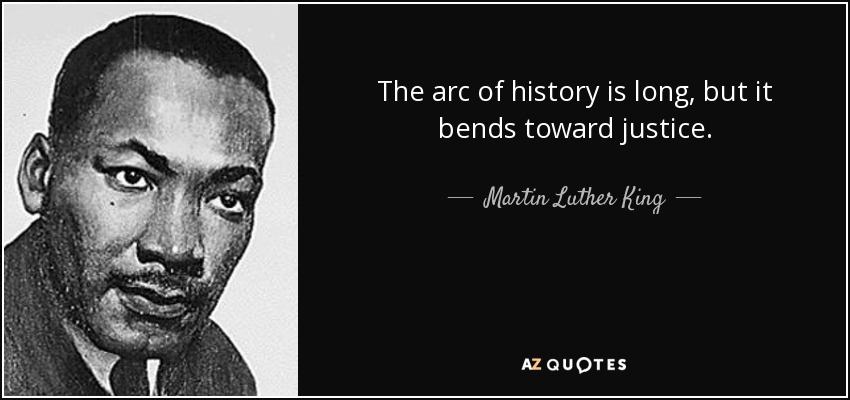
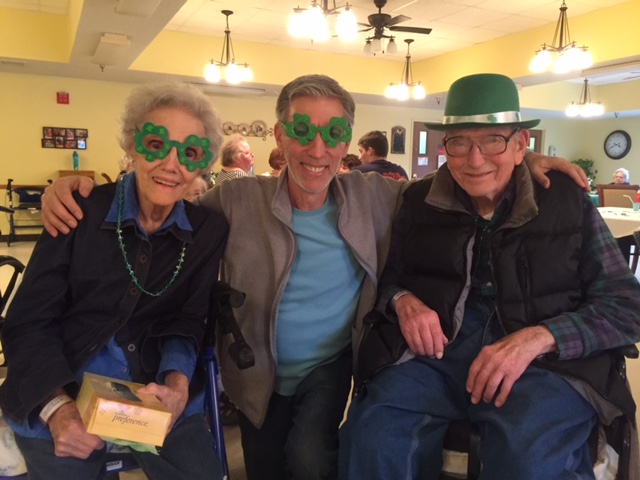

 RSS Feed
RSS Feed